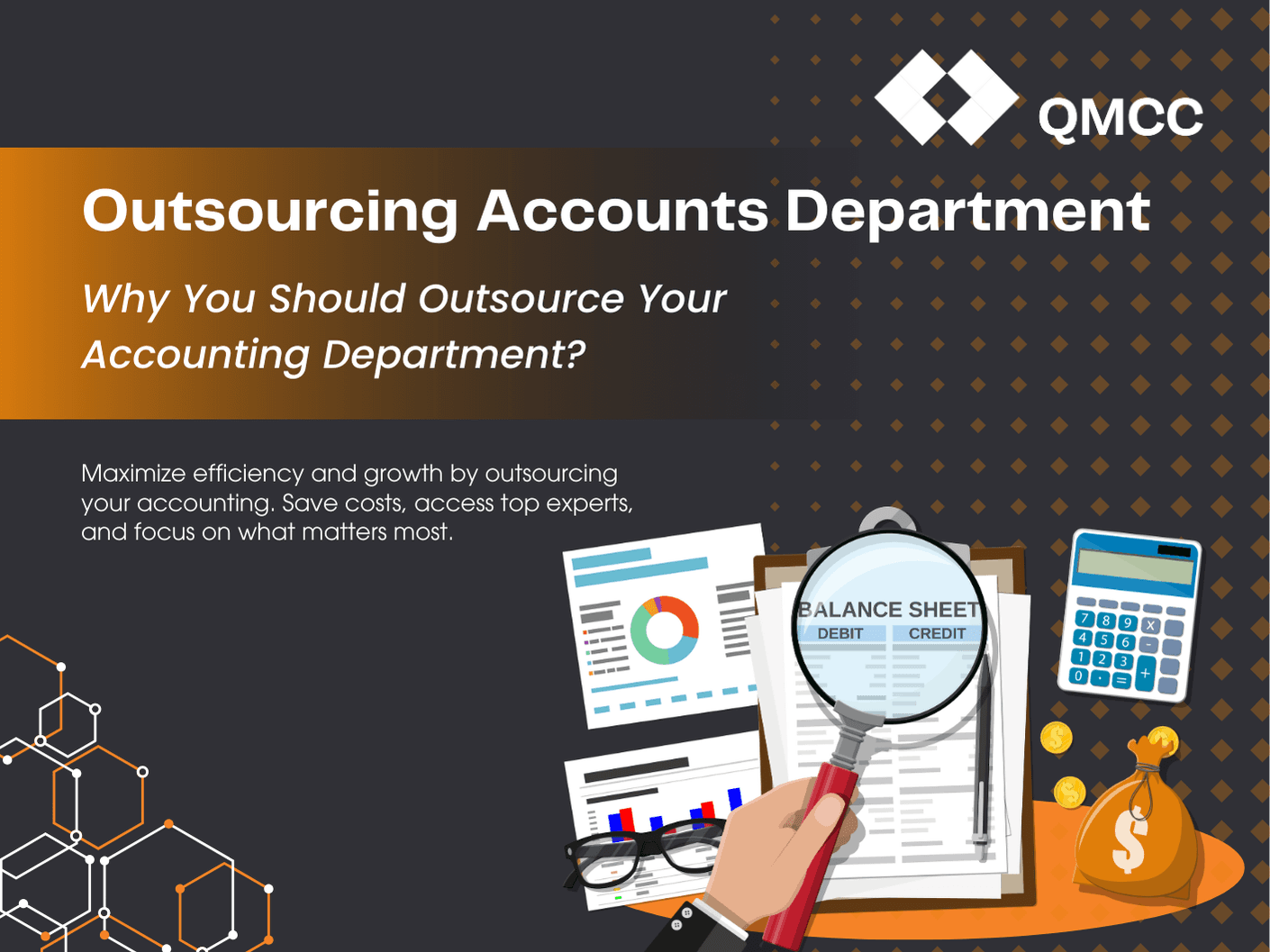
Blog
July 19, 2024
Key Considerations When Outsourcing Financial Functions

Blog
July 19, 2024
Key Considerations When Outsourcing Financial Functions
Introduction Outsourcing financial functions can provide businesses with access to expertise, cost savings, and improved efficiency. However, it’s essential to consider several factors to ensure a successful outsourcing partnership. Here are key considerations when outsourcing financial functions.
1. Define Your Goals and Objectives
Clearly define your goals and objectives for outsourcing financial functions. Determine which tasks you want to outsource and what outcomes you expect. This clarity will help you find a provider that aligns with your business needs and goals.
2. Choose the Right Provider
Select a reputable and experienced outsourcing provider with a proven track record in financial services. Consider factors such as industry expertise, client testimonials, and the provider’s ability to meet your specific requirements.
3. Ensure Data Security and Compliance
Financial data is sensitive and requires robust security measures. Ensure the outsourcing provider has strong data security protocols, including encryption, secure data storage, and access controls. Additionally, verify that the provider complies with relevant regulations and standards.
4. Assess Technology and Tools
Evaluate the technology and tools used by the outsourcing provider. Ensure they use advanced financial software and tools that integrate with your existing systems. The right technology can enhance efficiency, accuracy, and reporting capabilities.
5. Establish Clear Communication Channels
Effective communication is crucial for a successful outsourcing partnership. Establish clear communication channels and regular reporting mechanisms. Ensure that both parties understand the expectations, deliverables, and timelines.
6. Define Service Level Agreements (SLAs)
Clearly define Service Level Agreements (SLAs) that outline the scope of work, performance metrics, and timelines. SLAs provide a framework for measuring the provider’s performance and ensuring accountability.
7. Consider Cultural Fit
Consider the cultural fit between your organization and the outsourcing provider. A provider that aligns with your company’s values, work culture, and business practices will facilitate smoother collaboration and a more successful partnership.
8. Monitor and Evaluate Performance
Regularly monitor and evaluate the performance of the outsourcing provider. Use key performance indicators (KPIs) to measure their effectiveness and identify areas for improvement. Continuous evaluation ensures that the provider meets your expectations and delivers quality services.
Conclusion
Outsourcing financial functions can bring significant benefits, but it requires careful consideration and planning. By defining your goals, choosing the right provider, ensuring data security, assessing technology, establishing clear communication, defining SLAs, considering cultural fit, and monitoring performance, you can ensure a successful outsourcing partnership that enhances your financial operations.
1. Define Your Goals and Objectives
Clearly define your goals and objectives for outsourcing financial functions. Determine which tasks you want to outsource and what outcomes you expect. This clarity will help you find a provider that aligns with your business needs and goals.
2. Choose the Right Provider
Select a reputable and experienced outsourcing provider with a proven track record in financial services. Consider factors such as industry expertise, client testimonials, and the provider’s ability to meet your specific requirements.
3. Ensure Data Security and Compliance
Financial data is sensitive and requires robust security measures. Ensure the outsourcing provider has strong data security protocols, including encryption, secure data storage, and access controls. Additionally, verify that the provider complies with relevant regulations and standards.
4. Assess Technology and Tools
Evaluate the technology and tools used by the outsourcing provider. Ensure they use advanced financial software and tools that integrate with your existing systems. The right technology can enhance efficiency, accuracy, and reporting capabilities.
5. Establish Clear Communication Channels
Effective communication is crucial for a successful outsourcing partnership. Establish clear communication channels and regular reporting mechanisms. Ensure that both parties understand the expectations, deliverables, and timelines.
6. Define Service Level Agreements (SLAs)
Clearly define Service Level Agreements (SLAs) that outline the scope of work, performance metrics, and timelines. SLAs provide a framework for measuring the provider’s performance and ensuring accountability.
7. Consider Cultural Fit
Consider the cultural fit between your organization and the outsourcing provider. A provider that aligns with your company’s values, work culture, and business practices will facilitate smoother collaboration and a more successful partnership.
8. Monitor and Evaluate Performance
Regularly monitor and evaluate the performance of the outsourcing provider. Use key performance indicators (KPIs) to measure their effectiveness and identify areas for improvement. Continuous evaluation ensures that the provider meets your expectations and delivers quality services.
Conclusion
Outsourcing financial functions can bring significant benefits, but it requires careful consideration and planning. By defining your goals, choosing the right provider, ensuring data security, assessing technology, establishing clear communication, defining SLAs, considering cultural fit, and monitoring performance, you can ensure a successful outsourcing partnership that enhances your financial operations.
Introduction Outsourcing financial functions can provide businesses with access to expertise, cost savings, and improved efficiency. However, it’s essential to consider several factors to ensure a successful outsourcing partnership. Here are key considerations when outsourcing financial functions.
1. Define Your Goals and Objectives
Clearly define your goals and objectives for outsourcing financial functions. Determine which tasks you want to outsource and what outcomes you expect. This clarity will help you find a provider that aligns with your business needs and goals.
2. Choose the Right Provider
Select a reputable and experienced outsourcing provider with a proven track record in financial services. Consider factors such as industry expertise, client testimonials, and the provider’s ability to meet your specific requirements.
3. Ensure Data Security and Compliance
Financial data is sensitive and requires robust security measures. Ensure the outsourcing provider has strong data security protocols, including encryption, secure data storage, and access controls. Additionally, verify that the provider complies with relevant regulations and standards.
4. Assess Technology and Tools
Evaluate the technology and tools used by the outsourcing provider. Ensure they use advanced financial software and tools that integrate with your existing systems. The right technology can enhance efficiency, accuracy, and reporting capabilities.
5. Establish Clear Communication Channels
Effective communication is crucial for a successful outsourcing partnership. Establish clear communication channels and regular reporting mechanisms. Ensure that both parties understand the expectations, deliverables, and timelines.
6. Define Service Level Agreements (SLAs)
Clearly define Service Level Agreements (SLAs) that outline the scope of work, performance metrics, and timelines. SLAs provide a framework for measuring the provider’s performance and ensuring accountability.
7. Consider Cultural Fit
Consider the cultural fit between your organization and the outsourcing provider. A provider that aligns with your company’s values, work culture, and business practices will facilitate smoother collaboration and a more successful partnership.
8. Monitor and Evaluate Performance
Regularly monitor and evaluate the performance of the outsourcing provider. Use key performance indicators (KPIs) to measure their effectiveness and identify areas for improvement. Continuous evaluation ensures that the provider meets your expectations and delivers quality services.
Conclusion
Outsourcing financial functions can bring significant benefits, but it requires careful consideration and planning. By defining your goals, choosing the right provider, ensuring data security, assessing technology, establishing clear communication, defining SLAs, considering cultural fit, and monitoring performance, you can ensure a successful outsourcing partnership that enhances your financial operations.
Other Blogs
Other Blogs
Check our other project Blogs with useful insight and information for your businesses
Other Blogs
Other Blogs
Check our other project Blogs with useful insight and information for your businesses
Other Blogs
Other Blogs
Check our other project Blogs with useful insight and information for your businesses


